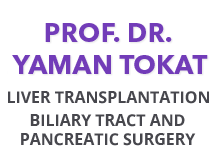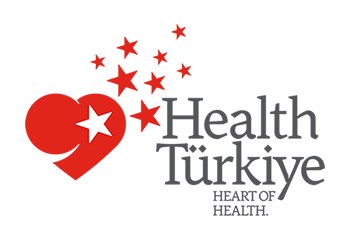Home Care After Liver Transplant
Until now, you have been under the careful supervision of the medical team in the transplant unit, but now it’s time to leave the hospital... From this point on, you are largely responsible for your own care; however, remember that your transplant team is always there to assist you if you encounter any problems.
Care of the Surgical Wound
Keep your surgical wound clean using an antiseptic soap. If you notice redness, swelling, or discharge, notify your doctor immediately.
Care of the T-Tube
If you have a T-tube inserted for bile drainage, the skin around the T-tube site may become infected.
What You Should Do:
- Clean the area around the tube using an antiseptic soap.
- Avoid any vigorous movements that might damage the wound or dislodge the T-tube.
Monitoring Your Temperature
If you feel feverish, experience chills, discomfort, or pain anywhere in your body, check your temperature. This may be an early sign of infection or organ rejection. If your temperature remains above 38°C for more than a day, contact your transplant team or doctor immediately. Do not take any medication without your doctor’s approval.
Never take any medication without your doctor’s approval.
Blood Pressure and Pulse
Your nurse will teach you how to measure your blood pressure and pulse. It is important to know your normal values so that you can inform your doctor if you notice any changes.
Contact your doctor or transplant team immediately if you notice any of the following:
- Redness around the skin near the T-tube
- Warmth at the T-tube site
- Discharge from the area
- Loosening of the stitch securing the T-tube
- Any change in the visible length of the T-tube
Dental Care
Use a soft toothbrush to avoid injuring your gums. Brush your teeth after every meal and rinse with an antiseptic mouthwash. If you wear dentures, clean them thoroughly after every meal.
To prevent infections and cavities, it is important to visit your dentist for a routine check-up every six months. If you do not have serious dental problems, you should avoid visiting the dentist within the first six months after your surgery. No matter how long it has been since your transplant, you must take antibiotics starting 24 hours before and continuing for 48 hours after any dental procedure. This preventive measure is called prophylaxis, and your doctor will tell you which antibiotic to use.
Regular dental visits are essential to prevent infections and tooth decay.
General Body Hygiene
Maintaining good personal hygiene is essential to minimize the risk of infection. Pay attention to the following points:
- Wash regularly and prefer taking showers rather than baths.
- Use liquid soap instead of bar soap when washing your hands.
- Change hand and face towels daily.
- Always wash your hands before meals and after using the toilet.
- Clean your nails thoroughly using a nail brush.
- During menstruation, women should change sanitary pads and tampons regularly.
Washing the area with mild soap and water is sufficient for hygiene.
Because blood provides an ideal environment for bacterial growth, women should change sanitary pads and tampons regularly during menstruation. Do not use any feminine hygiene products, as they contain disinfectants that destroy the natural microorganisms in the vagina, increasing the risk of infection. Regular washing with mild soap and water is sufficient.
Skin and Hair Care
Cortisone may cause acne on your face, chest, shoulders, or back. If acne develops, wash the area three times a day with a mild antibacterial soap and make sure to rinse thoroughly. Avoid rubbing the area and do not use medicated cosmetics to conceal acne, as makeup can delay healing. Remember that severe or infected acne should be treated by a dermatologist. If your acne problem persists, contact your doctor or a member of your transplant team for advice.
Remember that severe or infected acne should be treated by a dermatologist.
If your skin becomes excessively dry, temporarily stop washing the affected areas to allow your skin to regain its natural moisture. Use a mild soap and apply body lotion after bathing. Cortisone may also affect your hair. Permanent dyes, lighteners, gels, and bleaches can make your hair brittle and fragile, so use them with caution. Applying a good moisturizer to your hair will help keep it strong.
Unwanted Hair Growth
One of the side effects of some immunosuppressive drugs (especially cyclosporine) is increased facial hair growth. This may be distressing for women and children, but you should never stop taking your immunosuppressive medications. Use a depilatory cream or a special solution to lighten the hair. Waxing and electrolysis can also be effective for hair removal. If hair growth becomes excessive, consult your doctor for advice.
Sun Protection
Excessive sun exposure is harmful to everyone. Ultraviolet (UV) rays in sunlight can cause premature skin aging, sunburn, and skin cancer. Transplant patients are at higher risk of developing skin cancer because their immune systems cannot fully repair the damage caused by UV rays. Therefore, you should always protect your skin from the sun by following these simple rules:
- Avoid direct sunlight during midday hours (between 10 a.m. and 3 p.m.). Whenever possible, stay in the shade.
- When outdoors and not using sunscreen, wear a hat, long-sleeved clothing, and lightweight pants.
During the spring and summer months, use a high-quality sunscreen with a protection factor of at least 15. Apply the cream to all exposed areas, especially the face, neck, and hands. Sunscreen is removed by water; therefore, if you sweat or swim, reapply it regularly.
Remember that sunlight can still be harmful even on cloudy days. Ultraviolet rays reflected from the sea, sand, snow, or concrete can also cause sunburn. Never use tanning beds. Pay attention to moles—if you notice any change in color or irregular borders, contact your doctor immediately. Because transplant patients are immunosuppressed, their moles have a higher risk of becoming cancerous. Always protect your skin from the sun.





